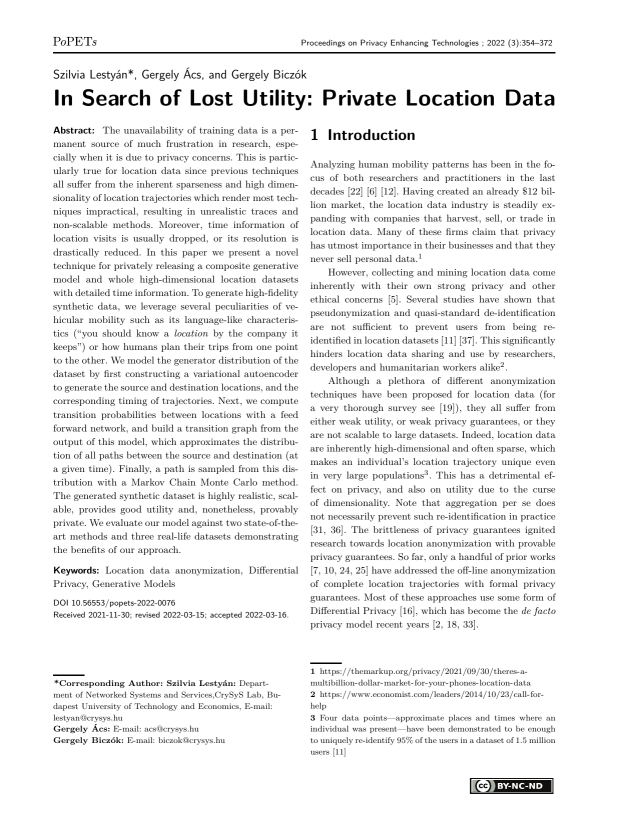In Search of Lost Utility: Private Location Data
Authors: Szilvia Lestyán (Department of Networked Systems and Services,CrySyS Lab, Budapest University of Technology and Economics), Gergely Ács, Gergely Biczók
Volume: 2022
Issue: 3
Pages: 354–372
DOI: https://doi.org/10.56553/popets-2022-0076
Abstract: The unavailability of training data is a permanent source of much frustration in research, especially when it is due to privacy concerns. This is particularly true for location data since previous techniques all suffer from the inherent sparseness and high dimensionality of location trajectories which render most techniques impractical, resulting in unrealistic traces and non-scalable methods. Moreover, time information of location visits is usually dropped, or its resolution is drastically reduced. In this paper we present a novel technique for privately releasing a composite generative model and whole high-dimensional location datasets with detailed time information. To generate high-fidelity synthetic data, we leverage several peculiarities of vehicular mobility such as its language-like characteristics (“you should know a location by the company it keeps”) or how humans plan their trips from one point to the other. We model the generator distribution of the dataset by first constructing a variational autoencoder to generate the source and destination locations, and the corresponding timing of trajectories. Next, we compute transition probabilities between locations with a feed forward network, and build a transition graph from the output of this model, which approximates the distribution of all paths between the source and destination (at a given time). Finally, a path is sampled from this distribution with a Markov Chain Monte Carlo method. The generated synthetic dataset is highly realistic, scalable, provides good utility and, nonetheless, provably private. We evaluate our model against two state-of-theart methods and three real-life datasets demonstrating the benefits of our approach.
Keywords: Location data anonymization, Differential Privacy, Generative Models
Copyright in PoPETs articles are held by their authors. This article is published under a Creative Commons Attribution-NonCommercial-NoDerivs 3.0 license.

